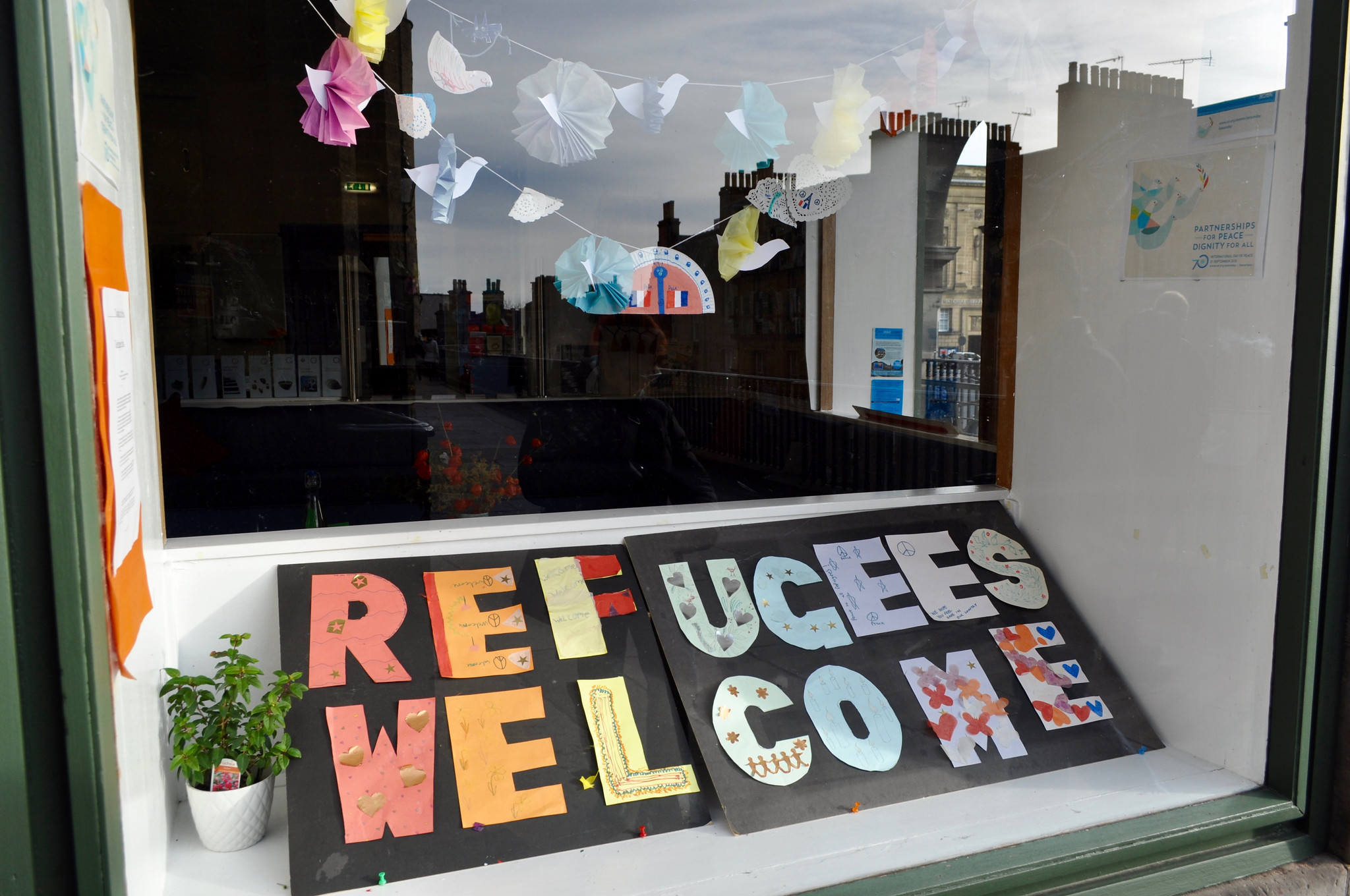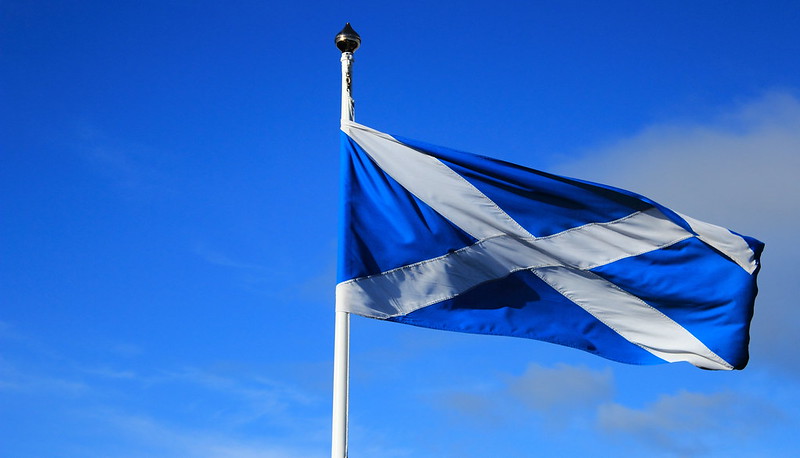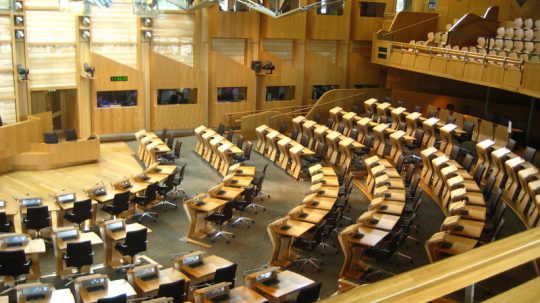In May 2021, two men were detained, out-of-the-blue, early one morning in Glasgow by UK Immigration Enforcement Staff. People who lived near them heard about it and were angry, and over 200 people came out on the streets to demand their release. After a tense day-long stand-off, Police Scotland eventually intervened to free the men back into their community.
“Refugees are welcome here!” “They messed with the wrong city.” “These are our neighbours, let them go!”.
People stood up for fairness, for dignity, and for their neighbours against the power of the Home Office. They were united in their concern that people should not be treated badly and unfairly – they demanded that their voice should be heard.
This blog is all about why the Human Rights Act (HRA) matters to people in Scotland. And I think this story of Glasgow solidarity with their migrant neighbours is a good demonstration of why the Human Rights Act matters to people in Scotland. Really, why it matters to people no matter where you live in the UK.
Why the HRA matters to Scotland, and to the rest of the UK
The Human Rights Act matters because it gives a clear way, embedded into the heart of our law, for people to have their voice heard. It is what we have put in place to make sure that big government treats individuals, our neighbours and family members, with fairness.
Interestingly, we are now seeing growing interest and support for human rights across Scotland. Individuals and organisations are increasingly demanding more human rights protections, and never less. For example, over 200 organisations signed a strong statement called the Scotland Declaration on Human Rights saying that they want human rights legal protections to go forwards.
They reject ‘the persistent negative rhetoric around the protection and promotion of rights in the UK’ and instead ‘declare that human rights and equalities must remain at the heart of Scottish society…Human rights standards should be continually strengthened over time. Scotland must help to shape and adopt the highest international human rights and equalities standards.’
And human rights are right there in the foundation of the Scottish Parliament. When the law was passed in 1998 to set up devolution, it included that Scottish Ministers cannot do anything that contravenes our human rights. Human rights are a pillar of devolution, and devolution in turn has been a progressive vehicle for change and making rights a reality. Sometimes for sure, devolved rhetoric and policy outstrips lived reality. However, unquestionably, human rights are often now a fundamental part of the debate and developments around policy and law making in Scotland, and the question is asked -not whether to recognise or keep our human rights legal protections – but how they should be recognised and implemented.
Scotland and International Law
Fast forward to March 2021, and the Scottish Parliament passed a bill to incorporate the UNCRC, the international treaty that protects children’s rights, directly into Scots law. This is probably the most significant strengthening of human rights there has been since the Human Rights Act in 1998. And what is notable is the overwhelming support from all political parties, from across Scottish civil society and most importantly, by many children and young people themselves, to see this UNCRC Bill passed.
These progressive developments on rights in law within devolution, and the considerable support for human rights across Scotland, have their foundation in our Human Rights Act. This Act is the underpinning floor that protects vulnerable individuals from an overbearing government. Everyday, in discussions affecting people’s lives in care, in mental health settings, in schools, in our police stations, and more, the Human Rights Act protects individuals.
We need more of that. We need the Human Rights Act and all of our human rights to affect and change government decision-making. We need our Human Rights Act to continue to be the secure foundation.
So why does the Human Rights Act matter to people in Scotland? Because people do, and without the Human Rights Act many people simply would not have a voice.
This opinion piece first featured on The British Institute of Human Rights guest blog. The views expressed belong to the author.





